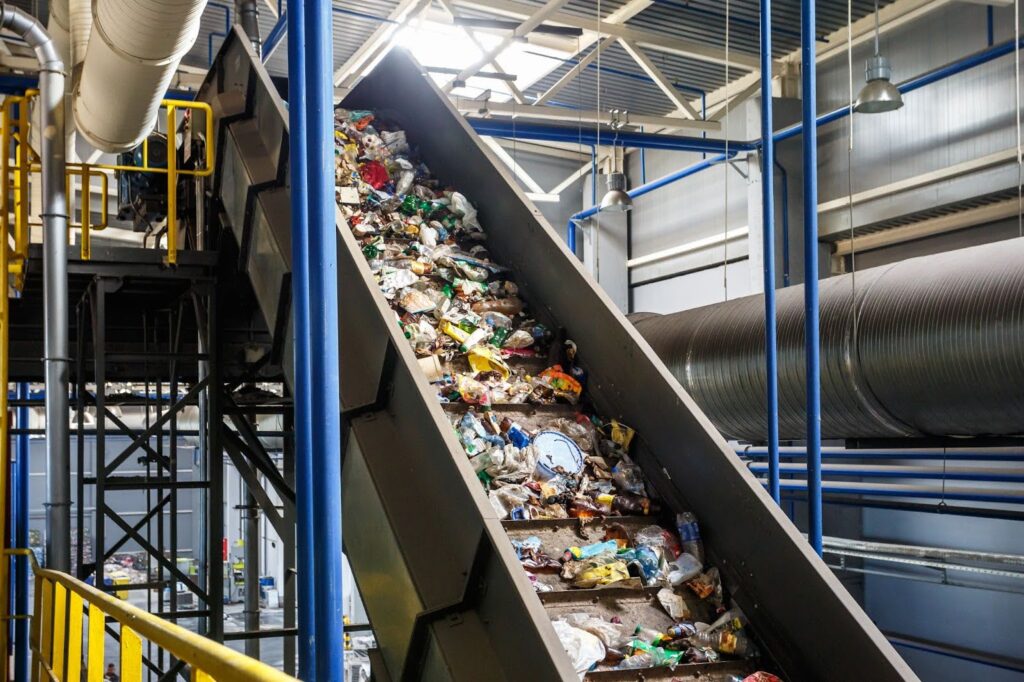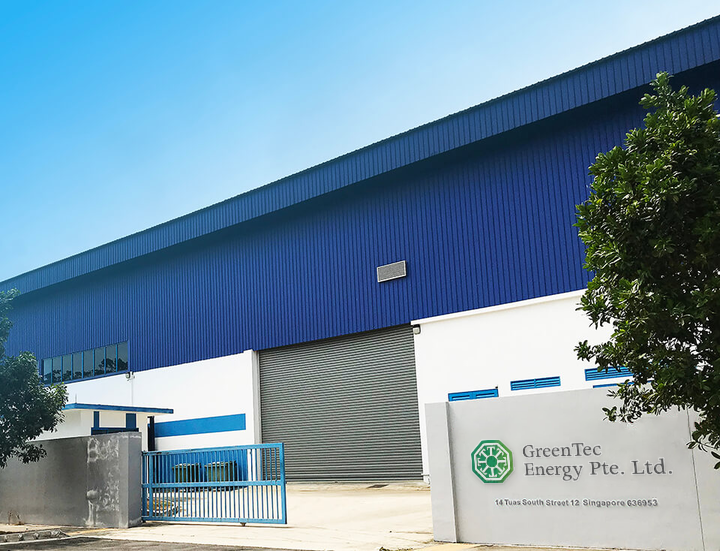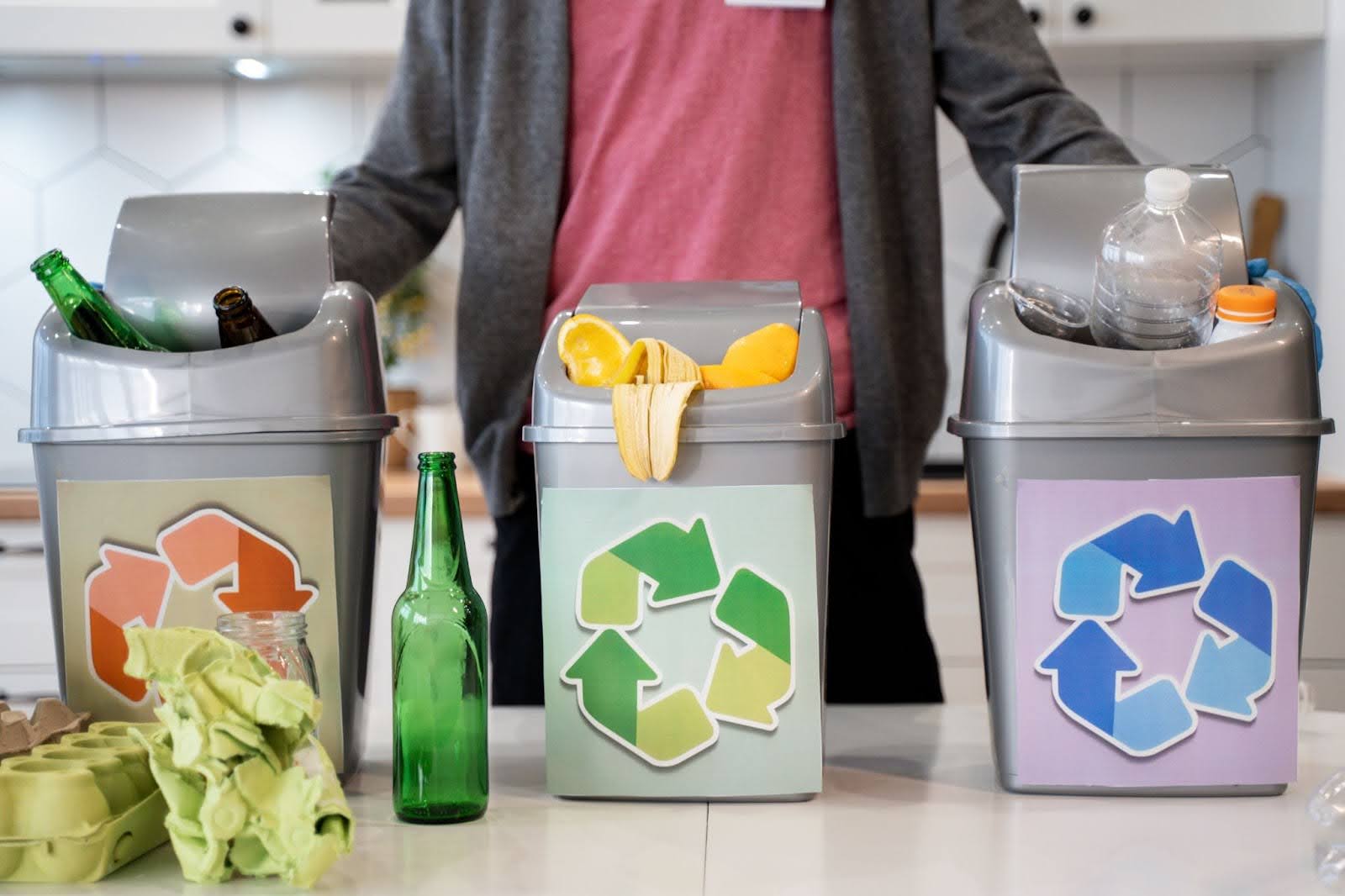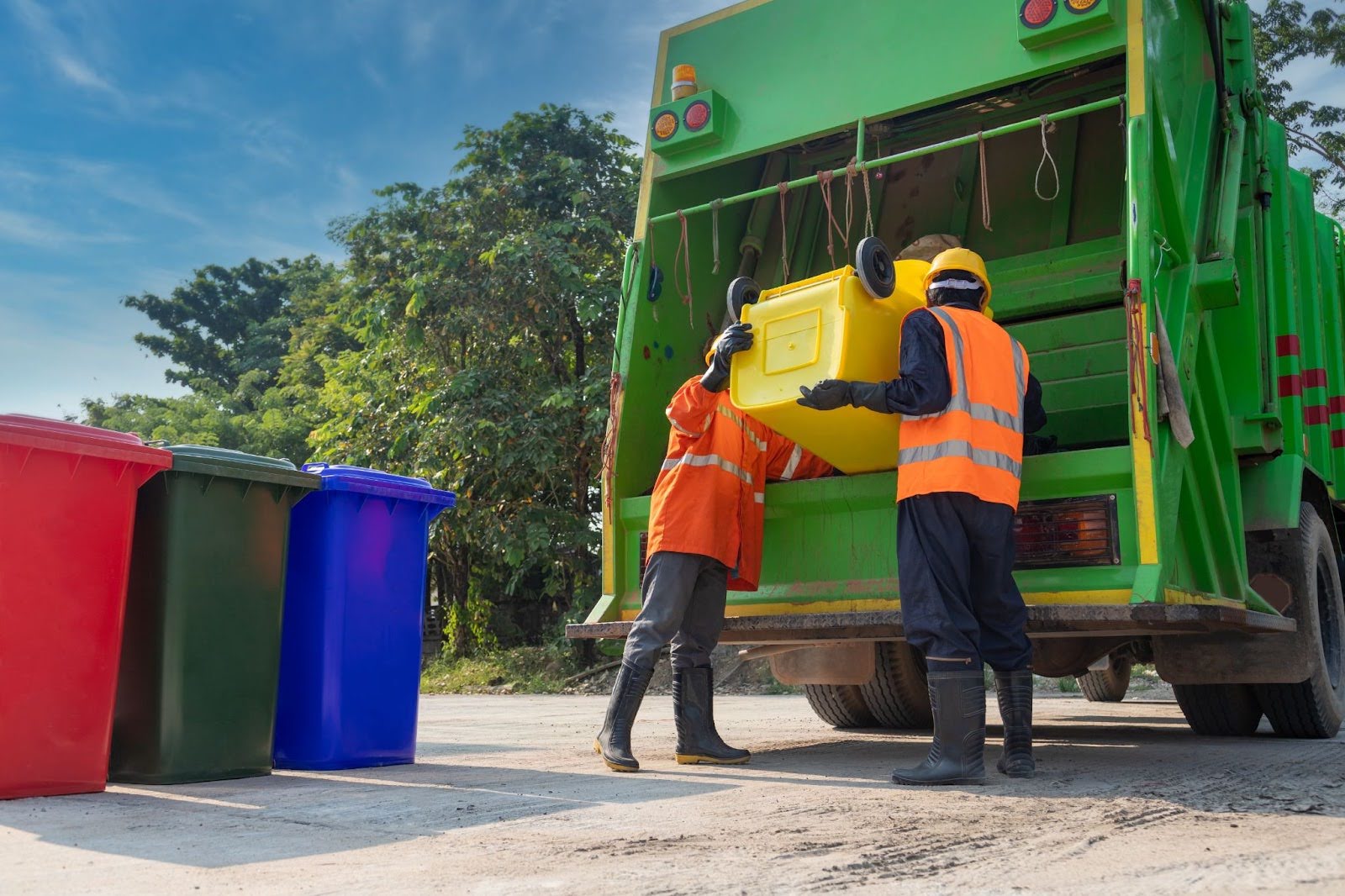10 Ways on How to Improve Waste Management
November 20, 2025

You’re paying to throw things away.
Time. Space. Money. All slipping through the cracks every time waste goes unmanaged.
Overflowing bins. Rising disposal costs. Mounting environmental guilt. These are only a few of the consequences that come from poor waste management.
The good news? There’s always a better way.
Here are 10 practical ways on how to improve waste management, whether for your business or your home.
Need waste disposal support?
From toxic waste to everyday rubbish, GTE offers sustainable disposal solutions. Reach us at +65 6261 1377 / +65 6261 1947 or use our contact form to get started.
1. Rethink Waste as a Resource
Most people see waste as something to discard. But in truth, almost every scrap holds value.
Items like aluminium, glass, and paper are recyclable and can be processed for reuse. Organic waste can be turned into compost. Even e-waste contains valuable metals.
This shift in mindset is crucial. When you start viewing waste as a potential resource (not just rubbish) you naturally become more intentional about how you sort, store, and dispose of it.
Businesses, for instance, can recover costs by separating recyclables and working with local recycling partners.
Households can reduce bin loads by composting food scraps or repurposing packaging.
In industrial settings, leftover materials or offcuts can be resold or reintroduced into production.
Why It Matters
Reducing waste at the source leads to fewer landfill trips, lower carbon emissions, and long-term cost savings for everyone involved.
Read more: Where to Recycle E-Waste
2. Start with a Simple Waste Audit
You can’t improve what you don’t measure. A basic waste audit helps you understand exactly what is being thrown away, how much of it is recyclable, and where unnecessary costs are piling up.
Keep it simple. Track the types of waste you generate over a week, how often they’re thrown out, and how they’re disposed of.
Use a spreadsheet, notes app, or bin labels – whatever fits your setting. Categorise food waste, recyclables, e-waste, packaging, or offcuts.
For larger businesses or industrial sites, consider bringing in a professional waste auditor for deeper insights and compliance checks.
Ask yourself:
Are recyclables ending up in general waste? Is usable food being discarded too soon? Are you throwing out excess packaging, offcuts, or materials that could be reused or recovered?
This information allows businesses to fine-tune their waste sorting systems and keep collection expenses in check.
For households, it reveals habits worth rethinking, like overbuying groceries or relying on disposable items.
For industries, it highlights inefficiencies in production, helps recover valuable materials, and supports compliance with environmental standards.
Why It Matters
A small effort upfront can lead to lasting change – less waste, cleaner spaces, and a lighter bill from your waste collector.
NEA also provides detailed guidance for different settings. Refer to the 3R Guidebook for Industrial Developments or the 3R Guidebook for Offices for practical tips tailored to your operations.
3. Segregation Is Not Optional
Mixing recyclables with wet waste ruins the effort. Just one soiled item can contaminate an entire bag of recyclables, making it all unrecyclable. In Singapore, this is one of the main reasons why well-intentioned recycling ends up in incineration.
Segregation isn’t just recommended, it’s essential. It’s also one of the easiest and most effective ways to improve waste management.
Use separate bins for paper, plastic, glass, metal, food waste, and general waste. Label them clearly. Colour-coded bins help people sort at a glance, reducing confusion and improving consistency.
For businesses and industries, proper training is key – especially when handling hazardous materials such as batteries, chemicals, or industrial waste. Staff need to know what goes where, when proper labelling is needed, and why it matters.
In households, place the bins in accessible areas and empty them regularly to prevent smells and pests.
Why It Matters
Clean, sorted waste is cheaper to collect, easier to process, and more likely to be truly recycled. Whether you manage an office, a shop, a manufacturing company, or a household, getting segregation right is a small step that delivers real results.
4. Composting and Donating Brings Surprising Benefits
If you think composting is only for farms or large gardens, you’re mistaken.
Even HDB flats and urban households in Singapore can compost on a small scale using odour-free indoor bins or by participating in community composting programmes.
By composting, you reduce your household’s waste volume while producing nutrient-rich material that can be used for home plants, community gardens, or donated to local greening projects.
For businesses in the F&B, retail, or food supply sector, commercial-scale composting can significantly reduce disposal costs, especially with food waste charges likely to rise in the future.
It also enhances your brand’s environmental credibility – a growing concern for customers who value sustainability.
Moreover, if your business has excess food or fresh produce, consider donation options. Initiatives like Food Rescue Sengkang, SG Food Rescue, and Food Bank Singapore accept unsold but safe-to-eat food from supermarkets, food outlets, and wholesalers, helping reduce waste while supporting communities in need.
Why It Matters
Reducing food waste through composting and donation cuts disposal costs, lowers landfill impact, and supports local communities. Whether you’re at home or running a business, these simple actions help build a greener, more sustainable Singapore.
Curious about where your leftover food could go? Learn more about food waste management strategies and how Singapore’s food donation law encourages safe giving and supports local redistribution efforts.
5. Go Paperless Where You Can
Paper may seem harmless, but the environmental toll can be staggering. Paper and cardboard waste makes up a large portion of daily waste, much of which can be avoided.
Digital tools offer a cleaner, faster alternative. From e-invoices to cloud storage, going paperless improves both sustainability and efficiency.
In offices, digital workflows help reduce clutter and make document retrieval easier. Less printing also means lower expenses on materials, energy, and office space.
For individuals, going digital with bills, statements, and receipts helps cut down on unnecessary consumption.
If you need to print, opt for recycled paper and print on both sides. Make sure to put paper waste into designated recycling bins for proper disposal. Even one misplaced sheet can contribute to unnecessary landfill load.
Why It Matters
Paper waste often flies under the radar, but it adds up fast. It costs both money and trees. Going paperless lightens your environmental footprint, saves space, and improves your day-to-day efficiency, whether at work or at home.
6. Choose Packaging That Makes Sense
Packaging waste is one of the most visible forms of rubbish. But it’s also one of the easiest to reduce.
Many everyday items are overwrapped, non-recyclable, or made with mixed materials that complicate disposal.
One simple way to cut back is to choose products with minimal, recyclable, or reusable packaging. Look for refillable containers, bulk items, or brands that use biodegradable materials.
For businesses, try to switch your packaging from non-recyclables to recyclables. Sustainable packaging appeals to eco-conscious consumers and reduces disposal volume – which can lower waste management costs.
If you run a café or retail store, even small swaps (like bamboo cutlery, biodegradable bags, or paper-based wrappers) can leave a lasting impression on customers.
Why It Matters
Thoughtless packaging harms the earth more than we realise. It fills bins, wastes resources, drives up costs, and endangers wildlife – both on land and in the ocean. Choosing smarter packaging is a low-effort change with long-term benefits for your wallet, business, and the planet.
7. Engage Staff, Tenants, or Family Members
Waste management is a team effort. Whether you're running a business, managing a facility, or living in a shared household, everyone needs to be on board for the system to work.
Make it easy to follow the rules. Use visible signage. Offer brief, friendly reminders. Share the benefits: cleaner spaces, fewer pests, lower costs, and a more pleasant environment for everyone.
People are more likely to cooperate when they understand the reason behind the rules and when the process feels simple and manageable.
Why It Matters
Even the best waste system fails without cooperation. Engagement turns everyday habits into long-term change.
8. Work with Licensed Waste Collectors
Even with your best efforts, some waste types require expert handling. This is especially true for industrial and commercial sectors.
Waste like oily sludge, industrial chemicals, acids, alkalis, solvents, and biohazards can be dangerous if not managed properly. Improper disposal risks environmental harm, safety issues, and even legal consequences.
That is where professional help becomes essential.
Working with an NEA-licensed waste management company ensures your waste is collected, treated, transported, and disposed of legally, safely, and responsibly – in line with Singapore’s environmental regulations.
Licensed collectors also help you stay compliant with changing waste laws, proper documentation, and audit requirements – avoiding costly mistakes.
Why It Matters
Getting waste disposal wrong can lead to fines, environmental damage, or health hazards. Choosing a licensed expert protects your people, your business, and your peace of mind.
9. Reduce First, Reuse Next, Recycle Last
It's useful to recycle, but it's not the most effective first step. It still consumes energy, water, and resources. And not all items tossed into the recycling bin are actually processed for recycling.
Start by reducing what you use. Buy only what you need. Choose durable, long-lasting products over single-use ones.
Reuse containers, bags, bottles, and packaging wherever possible. Then recycle only what is truly left over.
This mindset shift (from convenience to conscious consumption) pays off. You will spend less, waste less, and help ease the pressure on Singapore’s waste system.
For businesses and industrial operations, reduction and reuse can create both environmental and financial benefits. Think beyond the bin:
- Switch to reusable pallets, crates, or returnable packaging in logistics
- Minimise raw material waste by optimising production processes.
- Repurpose offcuts or by-products into secondary products or sell them to recyclers.
These actions reduce disposal volumes, improve operational efficiency, and support ESG goals.
Why It Matters
Reducing and reusing saves more than just space. It saves energy, money, and the future of our environment. Whether in your household or your business, doing less can actually do more.
10. Stay Updated with Local Guidelines
As Singapore aims to become a more resource-efficient nation, its waste management regulations are constantly being refined. Keeping up with NEA guidelines ensures your practices stay legal, safe, and effective.
Whether it’s food waste segregation for large F&B outlets, proper e-waste disposal, or updated recycling rules, staying informed helps you avoid mistakes and adopt best practices early.
You can check the latest guidelines on the National Environment Agency (NEA) website or partner with a waste management company that keeps you ahead of the curve.
For businesses and property managers, working with a provider helps ensure you stay compliant while reaching your sustainability goals.
Why It Matters
When the rules change, being prepared makes all the difference – to your operations, your bottom line, and your environmental impact.
Ready to Improve Your Waste Management?
Waste is easy to ignore, until it becomes a problem and starts costing you. Overflowing bins. Penalty fines. Or that quiet nudge that you could be doing more for the environment.
Taking control of your waste is the first step towards greener living and a more compliant, cost-efficient business.
If you need support, GreenTec Energy (GTE) is here to help. As an NEA-licensed waste management partner rooted in Singapore, we make disposal safer, simpler, and more sustainable.
Call us at +65 6261 1377 / +65 6261 1947, fill in our contact form, or explore our services at gte.sg to get started.
 GreenTec Energy Pte Ltd (GTE) is a waste management company located in Tuas, Singapore.
GreenTec Energy Pte Ltd (GTE) is a waste management company located in Tuas, Singapore.
Our service includes Industrial waste, Oily waste, Marine waste.
To provide a hassle free solution to our customer is always the key approach and to ensure a win-win situation towards. As a NEA approved environmental company in Singapore, we take all our services seriously and to ensure maximum safety with compliances applied. Every step of our disposal processes are also designed to meet NEA & SCDF requirements, with latest treatment facilities and laboratories to test and treat all incoming waste before disposal.
GTE operates a total land area of about 100,000sqft at 14 Tuas South Street 12 Singapore 636953. With our comprehensive logistics and transportation fleet, we provide prompt and efficient services in transportation of waste to our premises.






